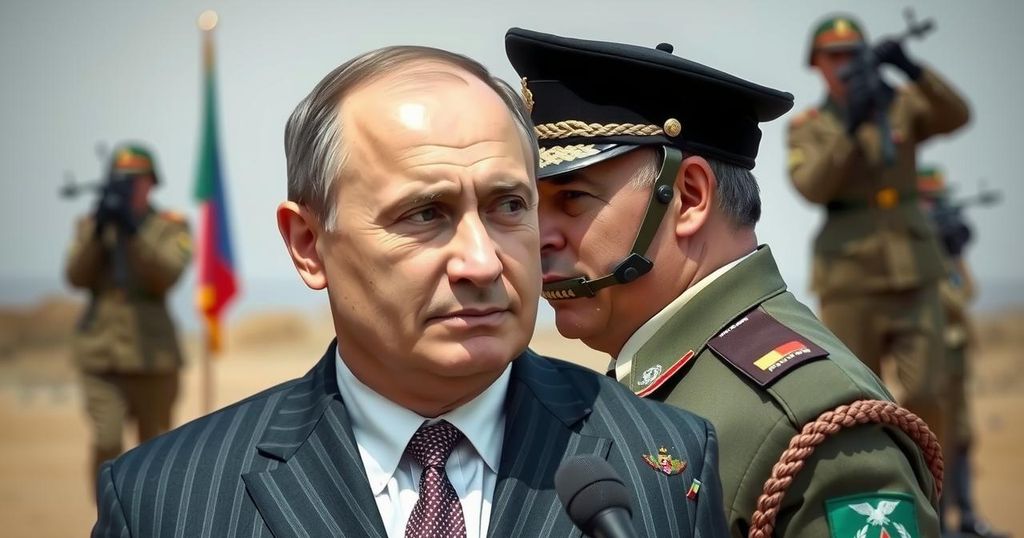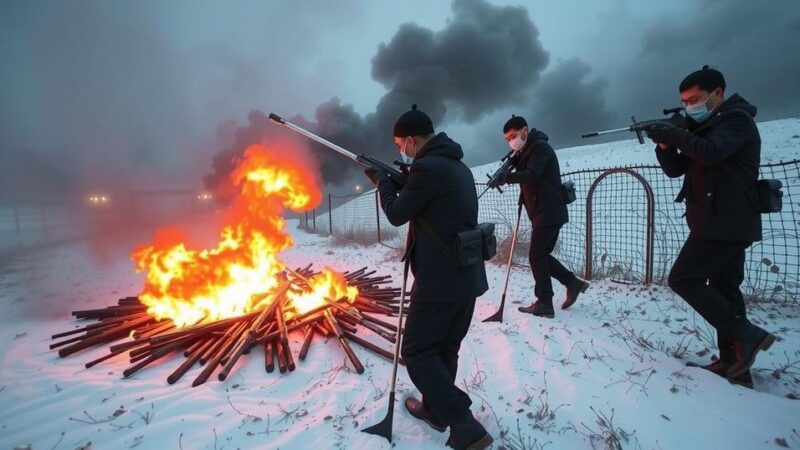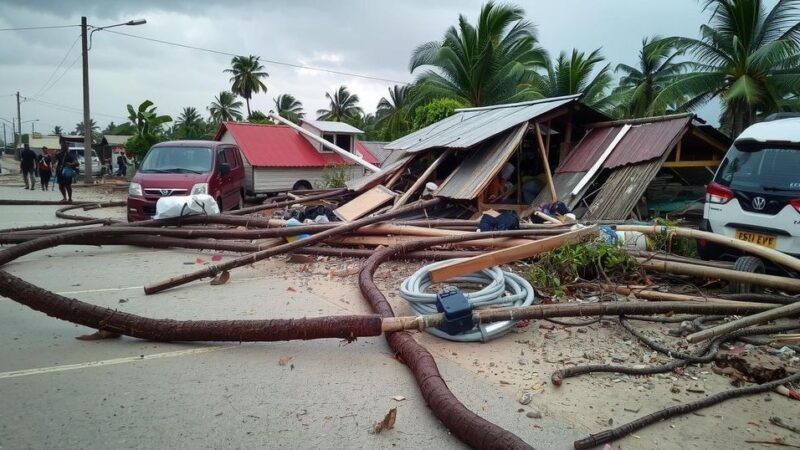Libyan PM Abdul Hamid Dabaiba has resisted Russia’s military reinforcement in Libya, asserting that the country must not become a battleground for international conflicts. Amidst reports of Russian weapon transfers, Dabaiba aims to secure Libya’s sovereignty and garnered US attention for economic reforms against corruption. Meanwhile, recent financial audits reveal significant discrepancies and may unveil deeper ties with Russia, complicating the country’s internal crisis.
Abdul Hamid Dabaiba, the Prime Minister of Libya’s UN-backed government based in Tripoli, has firmly rejected Russia’s attempts to bolster its military presence in eastern Libya. He expressed his concern that Libya should not become a battleground for international conflicts or a focal point for great power rivalries. Dabaiba emphasized that his government would not permit the transfer of Russian weapons to Libya, asserting that such actions would exacerbate the ongoing internal crises.
In recent days, there have been reports indicating that Russian forces are moving military equipment from bases in Syria to eastern Libya, where a rival eastern administration has received Russian backing for years. Dabaiba’s stance indicates a significant pivot, as he aims to project a more favorable image to the American government amidst increasing pressure related to corruption within Libya. He has engaged with the Russian ambassador seeking clarification on the military movements, underscoring his government’s commitment to Libya’s sovereignty.
The geopolitical landscape is further complicated by the economic strains placed upon Libya’s domestic affairs, highlighted by the recent revelations regarding the Libyan Central Bank’s finances. The Federal Reserve has implemented measures to halt dollar exchanges until an independent audit is conducted, raising alarms about financial mismanagement and oil revenue discrepancies, and potentially exposing financial connections to Russia. This multifaceted crisis signifies not only a struggle for domestic governance but also highlights the evolving foreign influence in Libya’s future.
The situation in Libya has been tense since the 2011 overthrow of dictator Muammar Gaddafi, leading to a prolonged power struggle between rival factions. Following the NATO-backed uprising, the country has struggled with division, with the UN-recognized government in Tripoli contending with an opposing administration in the east led by military leader Khalifa Haftar. The involvement of foreign powers, notably Russia, has raised concerns about sovereignty and the possibility of Libya becoming a battleground for proxy conflicts. The recent fall of the Assad regime in Syria has led to Russian maneuvers seeking to bolster their military capabilities in Libya, prompting a strong response from the Libyan government.
In summary, Prime Minister Abdul Hamid Dabaiba has taken a decisive stance against Russia’s military reinforcement in eastern Libya, emphasizing the need for national integrity and warning against potential international conflicts spilling into Libyan territory. This development occurs amidst the backdrop of a struggling economy characterized by corruption scandals and financial mismanagement, further complicating Libya’s political landscape. Dabaiba’s actions reflect a broader strategy to maintain Libya’s sovereignty while navigating the geopolitical complexities involving foreign powers, particularly Russia.
Original Source: www.theguardian.com






